Each month, our Outreach Team highlights an alumnus of Eliot-Pearson who is excelling in their professional career post-Tufts while continuing to maintain and spread the department’s mission.
This month, Outreach Coordinator Nick Woolf interviewed former Master’s student Christina Zagarino. A children’s media producer and researcher, Christina has worked in a variety of different roles and industries — from consulting to media to her current position as a User Experience Researcher at Google.
Read on to learn more about Christina’s path to (and through) EP as well as some advice for current Tufts students!
Nick: What brought you to EP to pursue a graduate degree? What were you doing prior to coming to Tufts?
Christina: I started exploring graduate programs in 2008. I was working in the education department for a kids and family theater and was thinking about ways to bring arts education to a mass audience of kids using media. Mister Rogers has always been my hero, so when I explored his educational background and discovered he studied child development at one point in his career, I began looking for a program that would allow me to study both child development and children’s media.
I was debating between two different programs, but I ultimately chose Tufts because it would take two+ years. When I talk to young people who want to get a graduate degree, I always urge them to study somewhere that will take at least two years. It gives you the opportunity to dive into the full range of coursework and really explore your area of study and interest.
I was fortunate to also teach at The Children’s School while completing my graduate work. This really rounded out my experience and allowed me to apply my learnings on a day-to-day basis. I loved the community that I was a part of there and think about my time in the classroom often. It’s inspired so much of my work in media for kids and families.
Nick: What skills did you gain and how did you grow (personally and professionally) from your time as a graduate student at Eliot-Pearson?
Christina: I really developed my professional profile as a children’s media maker and researcher at Eliot-Pearson. Working with Julie Dobrow and being so close in proximity to great creators of children’s media in Massachusetts allowed me to understand the industry, both from academic and practical points of view.
I grew my research skills at Eliot-Pearson. I didn’t know what good research was before I arrived, but I was able to understand and grow my methodology toolbox, generate thoughtful research questions and objectives, audit and communicate the existing research on particular subjects, and understand documentation, especially in classroom settings.
Personally, I developed relationships that nurtured my head and my heart. I especially loved my time meeting and working with families at The Children’s School. As developmental psychologists, we know the milestones and best practices of childhood, but being a parent is an entirely different ballgame. I got to interact with so many families whose value-systems and circumstances differed from one another. It was amazing to see the commitment in all of those families to give their children the best, and how that manifested itself differently based on their child’s individual needs.
I think about my education and time with families often now, as a parent myself. I’m learning that sometimes being a parent is just about doing your best. As a full-time working mother, I have had to identify how I can best support my son’s development and not to feel guilty when I need to find others to step in.
Nick: What types of research and/or applied work were you involved with at E-P?
Christina: I worked across several research projects during my time at Tufts specifically related to early childhood, children’s media, and arts education. I cut my teeth transcribing interviews for the YouthBEAT research projects. It was hard, but I’m an ace at transcribing real time interviews as a result. I worked on a content analysis and evaluation of the series Arthur with Julie Dobrow and several other students, in partnership with WGBH. This gave me facetime with some of the staff at WGBH and was my first connection to televised content, which was really thrilling. I also supported data collection for other students’ theses. We did that work for one another to help each other out, and I found it really valuable to understand other topics and gain more research experience.
My big project at Tufts though was producing a series of five short-form episodes of an original series I called Big Top Fitness. The show, intended for kids ages 3-5, was rooted in my previous work in arts education and promoted physical activity among young people using circus arts. I was very lucky to have the financial support of the Fred Rogers Memorial Scholarship to produce the series. Ultimately, I was still learning about the children’s media landscape and wasn’t savvy enough to get it to air, but through the development of that work I learned a lot and got my foot in the door with people in the industry.
Timing and context are such a funny thing. I’d do so much differently now if I had the opportunity to re-make Big Top Fitness. I’ve gained more experience, know-how, and have deeper principles on content for kids. When doing any kind of work, I think it’s important to remind yourself that you’re still learning every step of the way. I’ve grown and learned so much since my time at Tufts, and I’m lucky I had a sturdy foundation from my education there to do so.
Nick: Can you share a bit about your time as a media producer? Are you still involved with any children’s media initiatives?
Christina: My favorite role in children’s media was working at Speakaboos, a digital library startup that is now part of Learn with Homer. At Speakaboos I was producing mostly short-form interactive literature content for kids ages 2-5. Because I chose to work in a startup environment, I was able to wear a lot of different hats. I created artist contracts, collected and delivered notes for content in development, directed voice over sessions, and identified and planned for the upcoming slate of content. One of the highlights of my time there was working with Dr. Alice Wilder, a leader and pioneer in the field of children’s media research.
My work in children’s media has taken many turns, which is fairly unconventional. I like to follow my curiosity and engage with work that excites and challenges me. At the core of everything, however, is a commitment to high-quality content and experiences for kids and families.
I recently launched a small independent skateboard company called Pippi Boards. We feature decks designed exclusively by female artists. If you look back at my career in children’s media, you’ll see that skateboards have played an important role in the content I make. I think they are an amazing tool for kids to develop motor skills, focus, and practice trial and error. It’s important to tell our kids, especially girls, that it’s okay to fall and scrape their knees. That’s the only way they’ll learn to get up and try again. I’ve also really loved working with visual artists to bring the decks to life. Communicating with talented artists to bring a vision to fruition has always been one of the best parts of my children’s media work. It’s fun to see that work translate to a physical product like a skateboard.
Nick: What brought you to your current role now at Google, and how has that experience been?
Christina: Getting to Google was about being in the right place at the right time and being open to change and opportunity. My husband and I decided to move to California, his home state, in 2014. As a life-long Northeast resident, this was a big adjustment for me. I tried to keep my production job in New York, but bi-coastal life was a drag. My background in child development was a good fit for a role in user experience research that was open at Google at the time. I decided to try it out, and I’m really glad I did. What I love about UX research is the opportunity to speak with people and apply your findings to the creation of real product. I was able to work on some great projects at Google including Family Link and features on the Google Assistant for kids and families.
Right now, I’ve switched focus to products in the home. I work on projects for Google Nest, and love thinking about how smart homes work. My husband and I have brought a lot of those devices into our own home so I can test things out in real time. The developmental psychologist in me is really interested to see how my son, now 15 months old, evolves in a world with voice assistants. I haven’t heard him say, “Hey Google…” yet, but I’m sure it’s only a matter of time.
Nick: Do you have any advice, tips or words of wisdom to current E-P students?
Take your time, have multiple people proofread your thesis, experiment with your own applied work before you leave the safety of an educational environment, reach out to people who have a career that is what you aspire to, and put in the time and work to create the career path you want. Oh! And be kind to people.
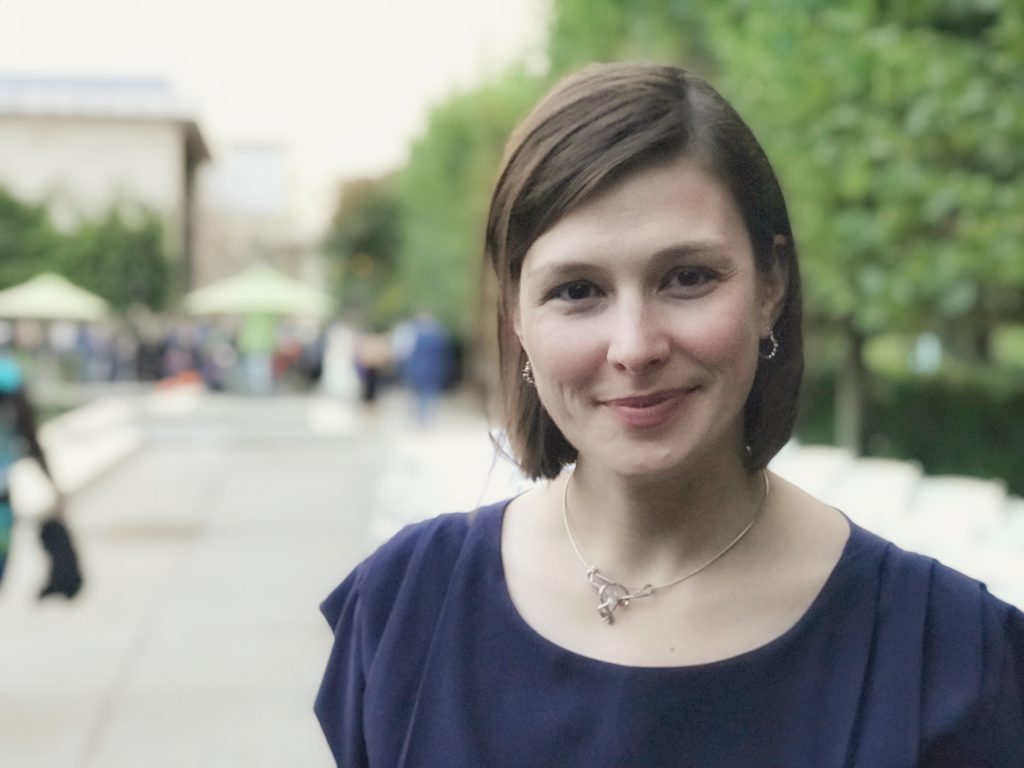
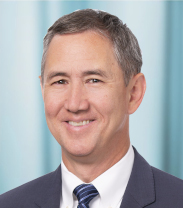

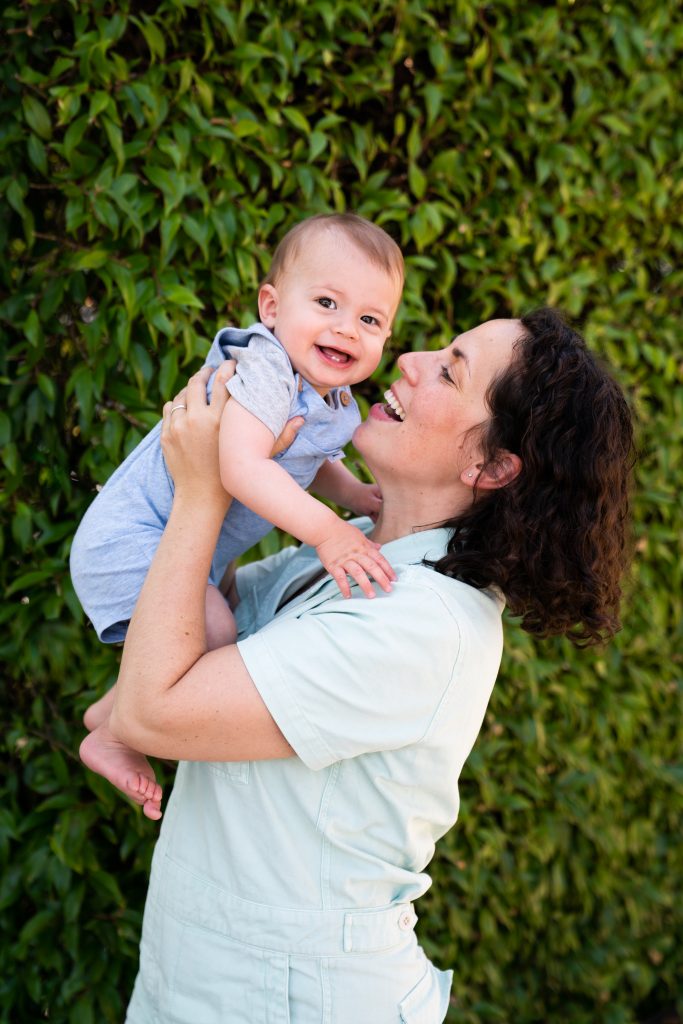

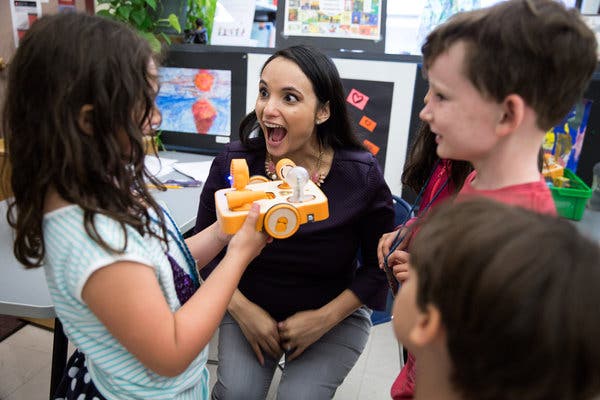
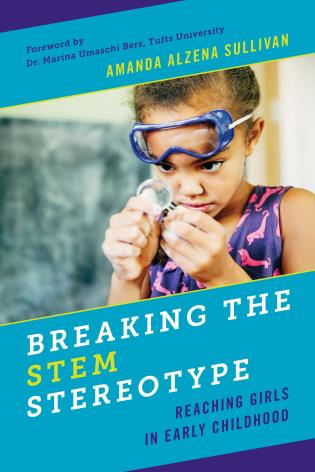
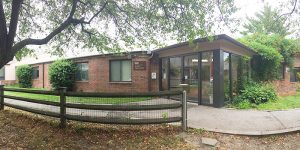
 ABOUT
ABOUT